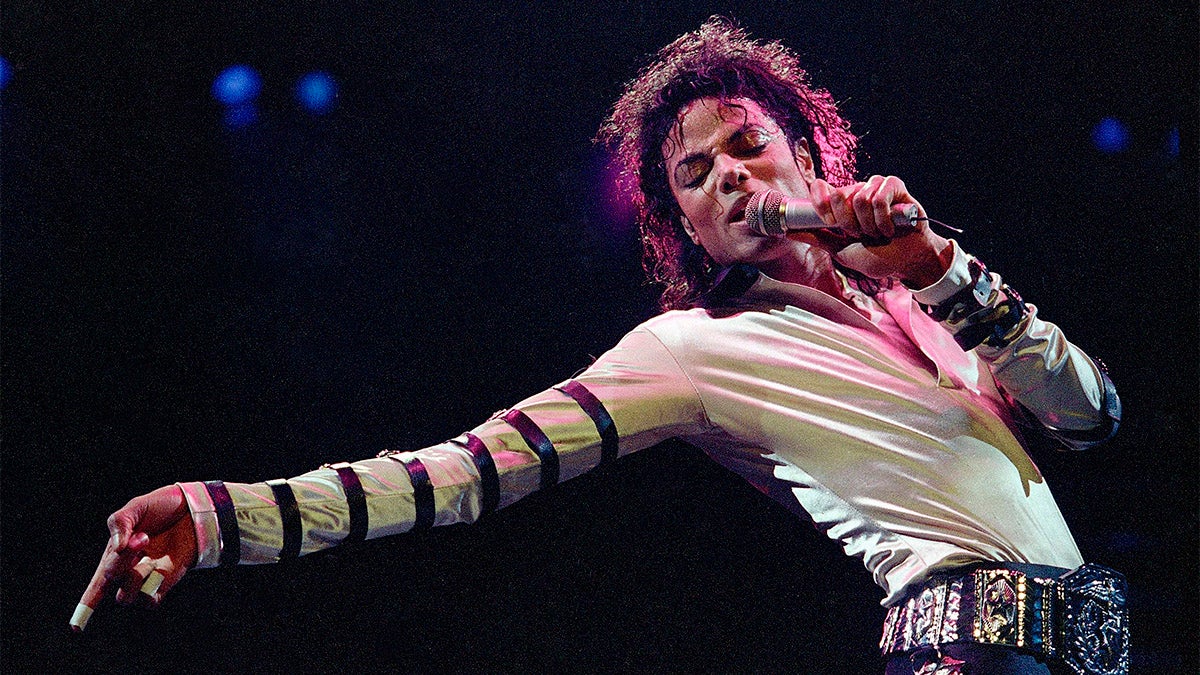I’m not surprised that a white actor will play Michael Jackson

In this Feb. 24, 1988 file photo, Michael Jackson leans, points and sings, dances and struts during the opening performance of his 13-city U.S. tour, in Kansas City, Mo. (AP Photo/Cliff Schiappa, File)
I watched with interest the selection of a white actor to play Michael Jackson in an upcoming British comedy. But I refused to work myself into a frenzy over this, the latest insult to black actors and black people, because anyone who understands the history of race and film should not be surprised.
Film has long been a driver of racist ideology. Perhaps I’m more sensitive to that as a black man. Unfortunately, the film industry doesn’t share that sense of awareness.
In the minds of Hollywood apologists, the racism in early films was justified by the artistry. For example, we’ve long been told that Birth of A Nation, the D.W. Griffith film based on the novel, “The Clansman,” was not a recruitment film for the Ku Klux Klan. If Hollywood elites are to be believed, Griffith’s film, which portrayed black men as rapists and the murderous Klan as heroes, was a sterling example of cinematic brilliance. Hollywood hailed it a technological marvel so innovative that the Directors Guild of America’s Award for Lifetime Achievement once bore D.W. Griffith’s name.
But the race-based ideology portrayed in mainstream films didn’t stop with Birth of a Nation. In films such as Gone With The Wind, the movie for which a brilliant black actress named Hattie McDaniel was awarded an Oscar for playing a maid, blacks were shown as simple-minded people whose only interest was the happiness of the slave holder. In other films, blacks were shown as servants whose wide-eyed gaze and mush-mouthed dialogue served to reinforce their status as second-class citizens.
Yes, there were exceptions, like independently produced movies by filmmakers like Oscar Micheaux. There were a few mainstream films. Carmen Jones, for example, starred an all black cast, including Dorothy Dandridge and Harry Belafonte. Sidney Portier conveyed black dignity on the silver screen. But theatrically released films showing blacks as three dimensional characters were few and far between. That’s why it’s hard for me to watch old films. To me, they look like propaganda designed to tell all of us what our status in America should be.
But American blacks weren’t the only ones who received short shrift in so-called classic films. Other people of color were also demeaned.
A white man employed insulting Asian stereotypes while portraying Charlie Chan. Charlton Heston played an Israelite named Moses—a man who should have looked like the brown-skinned Egyptians we see on hieroglyphics. Hollywood told us that Pharaohs were white, that Egypt is not in Africa, and that the only dark skinned people in biblical times were slaves.
So when I heard that a white actor named Joseph Fiennes had been slated to play Michael Jackson, I was neither surprised nor shocked. I was simply numb.
The 30-minute project is part of a comedy series called Urban Myths, according to a spokeswoman from the production company Sky Arts. It is about Jackson, Elizabeth Taylor, and Marlon Brando carpooling out of New York in the wake of 9/11. In my view, its comedic focus is underscored by having a white actor portray one of the great black entertainment icons of our time.
The fact that Jackson, when he was alive, explicitly told Oprah Winfrey in an interview that he was a proud African American who would not want to be portrayed by a white actor, just adds insult to the injury. Not only for Jackson’s family, but also for the entire African American community.
Unfortunately, none of this is new. It falls in line with the Academy Awards excluding black actors from nominations. It illustrates the mindset behind racist emails sent by Sony executives. It illustrates the overall attitude that keeps blacks in the background of mainstream films, if they are shown at all.
I, for one, am not surprised by this latest insult. Rather, I believe our community should be galvanized by it.
It’s time for black actors, directors, and producers to make more of their own films. It’s time for black moviegoers to vote with their dollars. It’s time for people of color to boldly tell our own stories.
The African American community can no longer wait for others to do it for us.
NOTE: This version has been corrected to clarify that the Michael Jackson project is a 30-minute episode in a comedy series and not a full-length film.
Listen to Solomon Jones weekdays from 7 am to 10 am on 900amWURD
WHYY is your source for fact-based, in-depth journalism and information. As a nonprofit organization, we rely on financial support from readers like you. Please give today.


